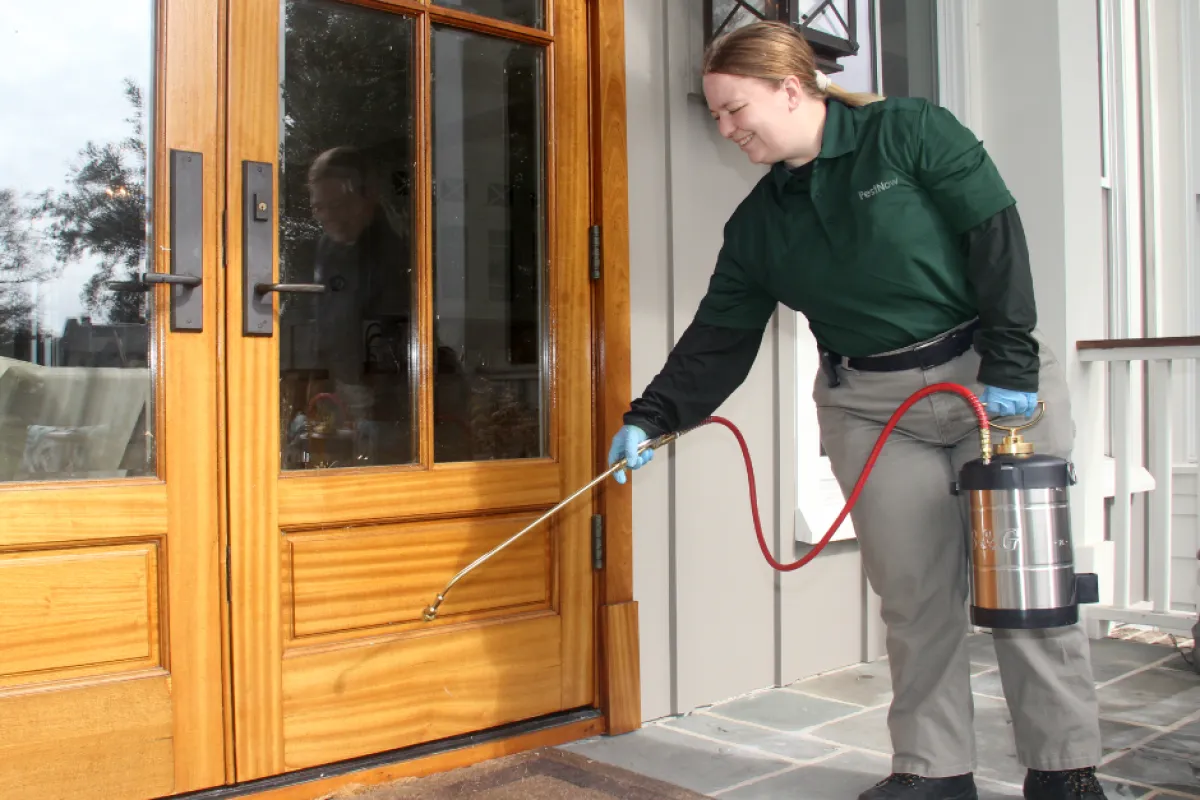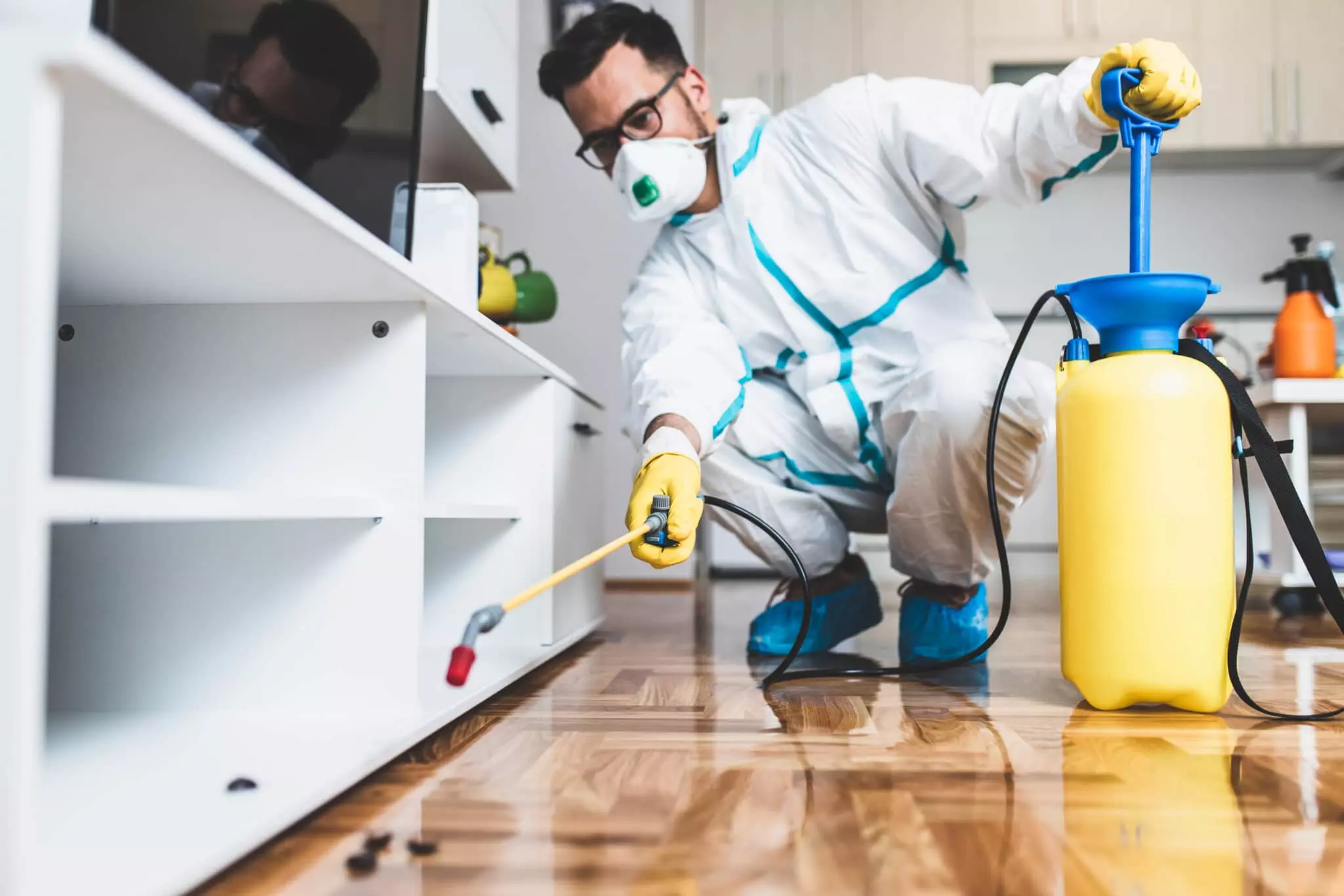Main Benefits of Termite Treatment Port Charlotte for Proactive Protection
Reveal the Value of Insect Control in Maintaining a Healthy And Balanced Setting and Therapy Techniques

The Function of Bugs in Ecosystems
Insects, commonly seen only as nuisances, play a complex role in communities that is vital for preserving eco-friendly balance. They contribute substantially to various environmental procedures, including pollination, nutrition biking, and pest control. Several insect species, such as butterflies and bees, are necessary pollinators for a large array of plants, which in turn supports biodiversity and food production.
Furthermore, parasites function as prey for various predators, developing a crucial link in food webs. This interdependence makes sure the survival of numerous varieties and aids regulate populations within environments (Termite treatment Port Charlotte). Decomposer insects, such as certain beetles and fungi, are instrumental in breaking down organic issue, hence improving dirt and assisting in nutrition recycling.
On the other hand, while insects can be helpful, their overpopulation or intrusion into non-native environments may interfere with these eco-friendly features. This complexity underscores the importance of understanding parasite characteristics, as efficient insect management approaches have to think about both their environmental functions and potential influences on human tasks. Balancing pest visibility while lessening harm is essential for protecting the honesty of environments and guaranteeing agricultural performance.
Health And Wellness Threats Related To Insects
The visibility of bugs in different environments expands past their eco-friendly roles, as they also pose significant health and wellness threats to human beings and pets. Several pests, consisting of bloodsuckers, rodents, and insects, are carriers of conditions that can have severe wellness effects. Rats are understood to transfer hantavirus and leptospirosis, both of which can lead to severe respiratory system and kidney problems, respectively.
Pests such as ticks and insects are notorious for spreading vector-borne conditions like malaria, dengue fever, and Lyme illness. These ailments can result in high morbidity and death rates, particularly in prone populations. Additionally, insects like cockroaches and insects can aggravate allergic reactions and asthma, adding to respiratory system issues in individuals, particularly those with pre-existing conditions.
Additionally, the existence of pests can bring about mental stress and discomfort, influencing total wellness. Contamination of food and surfaces by insect droppings and stays can result in foodborne illnesses, highlighting the importance of preserving sanitary problems. Recognizing the health dangers associated with pests is critical in recognizing the need of effective insect administration approaches to guard animal and human health.

Advantages of Reliable Pest Control
Effective pest control is important for preserving a risk-free and healthy atmosphere, as it regularly alleviates the various threats connected with bug infestations. One of the main advantages of reliable pest administration is the decrease of health dangers.
Furthermore, efficient bug control safeguards property and structures from damage. Lots of insects, like termites and carpenter ants, can create comprehensive architectural damage that may require pricey fixings. By proactively handling these invasions, companies and home owners can protect their financial investments.
An additional considerable benefit is the enhancement of general lifestyle. A pest-free environment adds to psychological well-being and reduces tension connected with problems. Effective parasite control fosters a much safer setting for youngsters and pets, making sure that homes stay sanctuaries cost-free from disease-causing organisms and unsafe chemicals.
Common Parasite Control Methods

In the world of parasite management, different strategies are employed to deal with invasions effectively. These methods can be broadly classified into 3 primary strategies: cultural, mechanical, and chemical controls.
Cultural control involves modifying techniques to decrease insect recreation, survival, and facility. This may include plant rotation, appropriate cleanliness, and environment manipulation, which collectively develop an ant problem atmosphere less for pest spreading.
Mechanical control utilizes physical techniques to eliminate parasites (Termite treatment Port Charlotte). Techniques such as vacuums, barriers, and catches are frequently made use of to directly get rid of bugs from a location. This method is particularly reliable for taking care of rats and insects without the use of harmful chemicals
Chemical control involves the application of pesticides to take care of bugs. These materials can be classified right into herbicides, insecticides, and fungicides, each targeting specific sorts of pests. It is critical to utilize these chemicals carefully, adhering to safety and security guidelines and policies to reduce prospective injury to non-target types and the atmosphere.
Each pest control method has its advantages and constraints, and usually, an incorporated method incorporating numerous techniques produces the ideal lead to keeping a pest-free setting.
Sustainable Parasite Monitoring Practices
Sustainable pest administration practices include a series of techniques created to decrease ecological influence while effectively controlling bug populaces. These practices focus on using ecologically friendly techniques over chemical pesticides, therefore minimizing the threat of harm to non-target types, including beneficial insects, wild animals, and humans.
Integrated Pest Administration (IPM) is a cornerstone of lasting practices, incorporating organic, cultural, mechanical, and chemical techniques to handle parasites. Organic control involves presenting all-natural killers or parasites to suppress bug populations. Social techniques, such as crop turning and polyculture, disrupt pest life cycles and enhance ecological community strength.
Mechanical approaches, such as barriers or traps, can successfully avoid pest access without chemical treatment. Furthermore, preserving healthy and balanced ecological communities via appropriate dirt management, plant health and wellness, and biodiversity best termite control can naturally reduce pest concerns.
Education and learning and recognition are vital components, encouraging individuals and areas to acknowledge pest risks early and carry out preventative steps. Termite treatment Port Charlotte. By fostering a holistic method that balances pest control with eco-friendly stability, lasting bug administration techniques not only protect structures and crops yet additionally add to a much healthier setting for future generations
Final Thought

Recognizing the wellness threats linked with bugs is important in recognizing the need of reliable pest management techniques to guard human and animal health and wellness.
Reliable parasite control is vital for maintaining a secure and healthy atmosphere, as it regularly reduces the countless dangers connected with insect invasions.Integrated Parasite Administration (IPM) is a cornerstone of lasting techniques, integrating biological, social, mechanical, and chemical strategies to handle insects. By recognizing the function of bugs, identifying associated wellness dangers, and using diverse treatment methods, a sustainable approach to pest administration can be accomplished. Integrated Bug Monitoring (IPM) stresses an all natural technique that alleviates injury to useful organisms while properly regulating parasite populations.